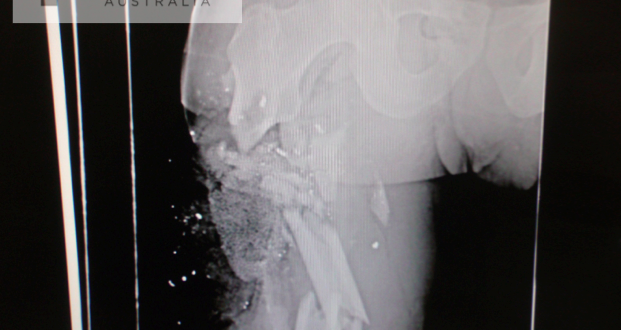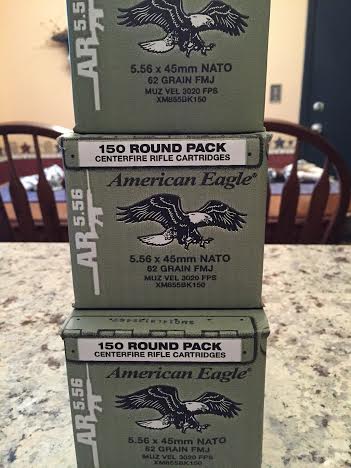Army And Marines In No Rush To Chamber A Common 5.56mm Round
BY Herschel SmithSo it doesn’t seem that the Army or the Marine Corps are in any hurry to explain to Congress why they don’t use a common 5.56mm round.
The final joint version of the Fiscal 2017 National Defense Appropriations Act includes a provision requiring the secretary of defense to submit a report to the House and Senate Armed Services Committees explaining why the two services are using different types of 5.56 mm ammunition for their M16A4 rifles and M4 carbines.
The bill has already passed the House and is expected to be voted on and approved by the Senate this week before going to President Obama’s desk for his signature.
This is not the first time Congress has gotten its dander up over this subject. Lawmakers asked both services to explain the same thing last year, but Marine Corps leaders said they need to do more testing of the Army’s M855A1 enhanced 5.56mm round.
I reached out to the Marine Corps yesterday and the Army today to ask about how they planned to deal with the request. I could almost hear the head-scratching as if neither service had heard anything about it.
According to the provision, the report must be submitted within 180 days after the bill, which includes the entire defense budget for the coming year, is enacted.
If the secretary of defense does not determine that an “emergency” requires the Army and Marine Corps to use the two different types of rifle ammo, they must begin using a common 5.56mm round within a year after the bill is passed, it states.
OK so here is the back story for those you out there who don’t know it.
The Army replaced the Cold-War era M855 5.56mm round in 2010 with its new M855A1 enhanced performance round, the end result of more than a decade of work to develop a lead-free round.
The M855A1 features a steel penetrator on top of a solid copper slug, making it is more dependable than the current M855, Army officials have maintained. It delivers consistent performance at all distances and performed better than the current-issue 7.62mm round against hardened steel targets in testing, Army officials maintain. It penetrates 3/8s-inch-thick steel at ranges approaching 400 meters, tripling the performance of the M855.
The Marine Corps had planned to field an earlier version of the Army’s M855A1 until the program suffered a major setback in August 2009, when testing revealed that the bismuth-tin slug proved to be sensitive to heat which affected the trajectory or intended flight path.
The setback prompted Marine officials to stay with the current M855 round as well as start using the MK 318 Special Operations Science and Technology round developed by U.S. Special Operations Command instead. Commonly known as SOST ammo, the bullet isn’t environmentally friendly, but it offered the Corps a better bullet after the Army’s M855A1 round failed.
Since then the Marine Corps has purchased millions of MK 318 rounds.
The MK 318 bullet weighs 62 grains and has a lead core with a solid copper shank. It uses an open-tip match round design common with sniper ammunition. It stays on target through windshields and car doors better than conventional M855 ammo.
The Army quickly replaced the bismuth-tin slug in its new round with a copper one, solving the bullet’s problems in 2010, Army officials said.
The new Army round also weighs 62 grains and has a 19-grain steel penetrator tip, 9 grains heavier than the tip on old M855 ammo. Seated behind the penetrator is a solid copper slug. The M855A1 consistently penetrates battlefield barriers such as windshields more effectively than the M855, Army officials contend.
The accuracy of the MK 318 may not be what it’s cracked up to be. However, for any of these heavier than 55 grain rounds, there is a detriment in muzzle velocity (these rounds lose up to 200 FPS), and that can actually make a difference in penetrating capability.
Suffice it to say that creation of an environmentally friendly round for the armed forces is laughable, and the main thing to be concerned about is ballistics. It would be interesting if someone still in the service would weigh in on this debate.
But as for Congress being briefed on the details of the ammunition being chosen by the armed forces, I agree with one of the comments. You may as well try to teach physics to a pig.





